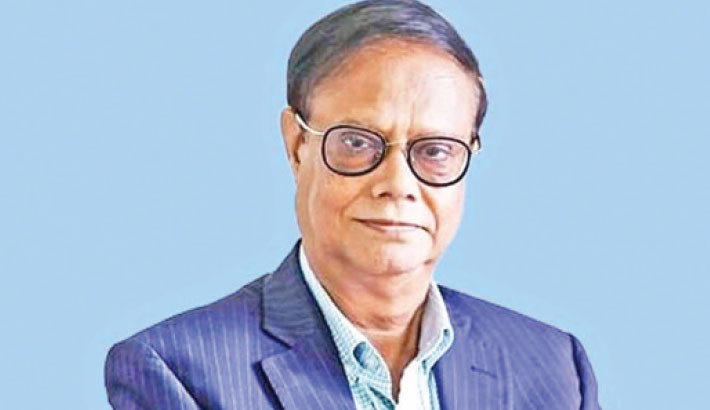Liquidity crunch, capital siphoning trigger merger of 5 banks: Governor
Daily Sun Report, Dhaka
Published: 21h ago

Bangladesh Bank has begun merging five Shariah-based banks grappling with severe liquidity shortages and large-scale capital flight, in a bid to safeguard depositors and restore confidence in the country’s Islamic banking sector.
“The merger process has been initiated for banks facing liquidity crises. We have taken this step to protect the interests of depositors,” Bangladesh Bank Governor Ahsan H Mansur said at the Bangladesh Islamic Finance Summit 2025 on Sunday.
The governor confirmed that a significant portion of capital from the five troubled banks had been siphoned abroad, leaving the central bank with no choice but to consolidate them.
On 5 November, Bangladesh Bank dissolved the boards of all five institutions and appointed administrators to create a new entity, Sammilito Islami Bank.
The banks being merged are EXIM Bank, First Security Islami Bank, Global Islami Bank, Union Bank, and Social Islami Bank.
Ahsan Mansur emphasised the need for stronger institutional discipline, noting that Islamic banks must operate with resilient balance sheets, higher paid-up capital, and improved governance.
“We want Islamic banking in Bangladesh to grow in a systematic, well-governed, and sustainable way. We expect board members to be responsible and representative,” he told delegates at the three-day summit, which aims to position Bangladesh as a leading Islamic finance hub in South Asia.
The governor said the future expansion of the sector would depend on robust accounting, auditing and governance frameworks aligned with AAOIFI (Accounting and Auditing Organisation for Islamic Financial Institutions) global Shariah and accounting standards.
“We need good accounting, governance and auditing structures for Islamic finance in Bangladesh. The central bank is working on an Islamic banking law, and we aim to follow global best practices,” he said, adding that strong auditing is essential for transparency and accountability.
Acknowledging recent turbulence in the sector, the central bank chief said Islamic banks remain fundamentally stronger than many other industries and that depositor confidence is gradually recovering.
“Globally, Islamic finance is doing well. In Bangladesh, we could have been in a far better position if not for the turbulence. Still, we have trust in the sector, and depositors are slowly rebuilding their confidence,” he said.
On Islami Bank Bangladesh Ltd (IBBL), the country’s largest private Islamic bank, Mansur said the institution still faces concerns over past irregularities.
He cited a major breach in which around Tk50,000 crore was allegedly taken out of the bank by a single family, severely straining its liquidity.
Despite this, IBBL has now overcome its liquidity crisis and recorded the highest deposit growth among Islamic banks this year, he noted.
The governor called on investors, depositors and employees to support the consolidation process, arguing that strong governance would allow the merger to stabilise the sector and benefit the wider economy.
City Bank Managing Director and CEO Mashrur Arefin attended the summit as special guest. Prof M Kabir Hassan of the University of New Orleans and ISRA CEO Eskandar Shah Mohd Rashid also spoke.
High-level delegates from Bahrain, Pakistan, Malaysia and the United States are participating in the summit, where discussions will focus on strengthening corporate governance in Islamic banks, improving financial inclusion, and integrating AAOIFI Shariah, governance, and accounting standards in Bangladesh.

